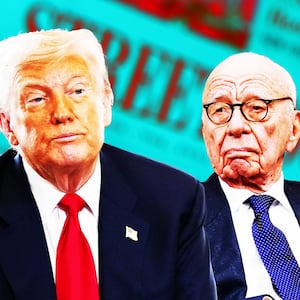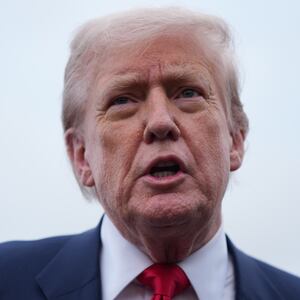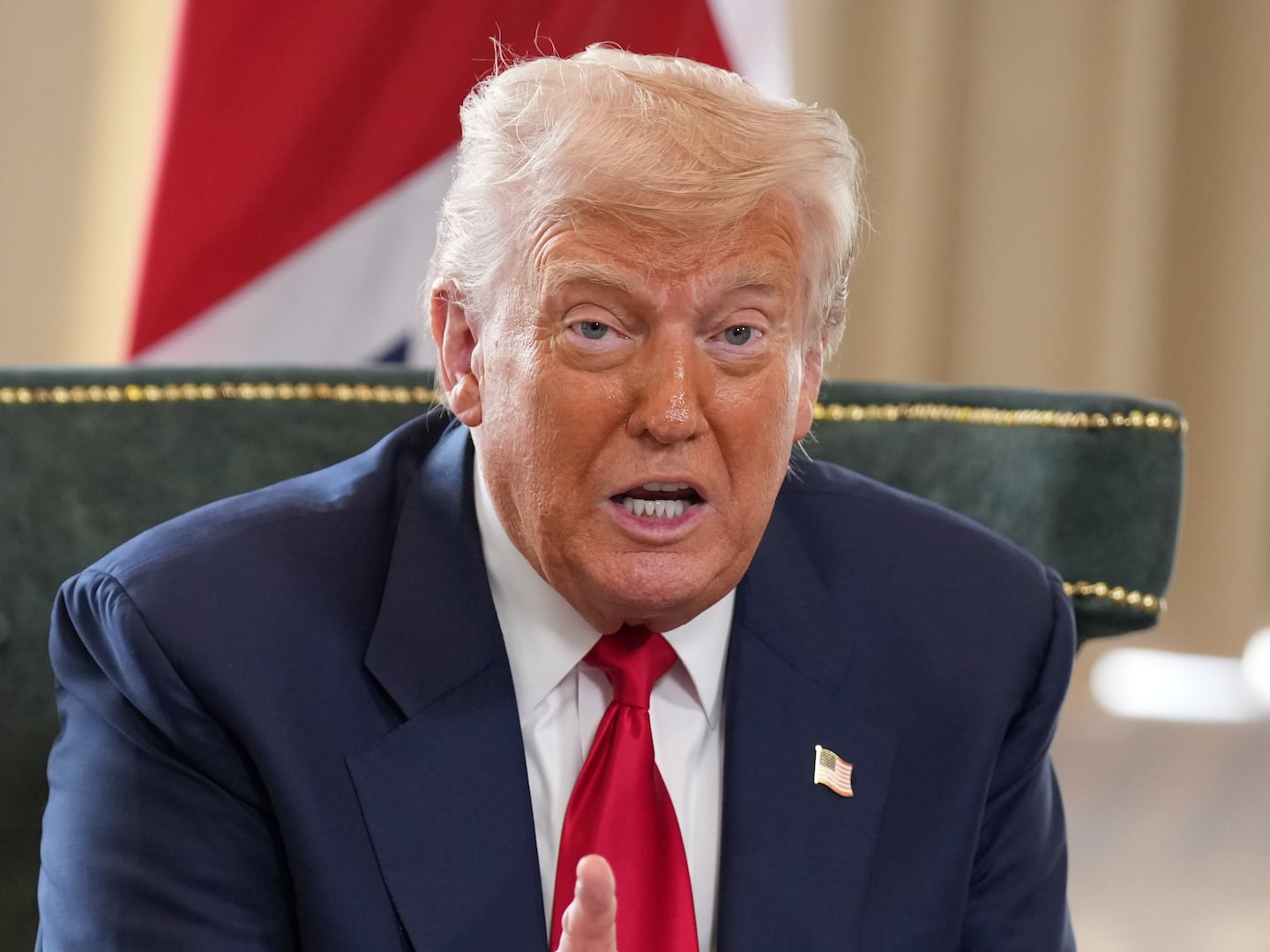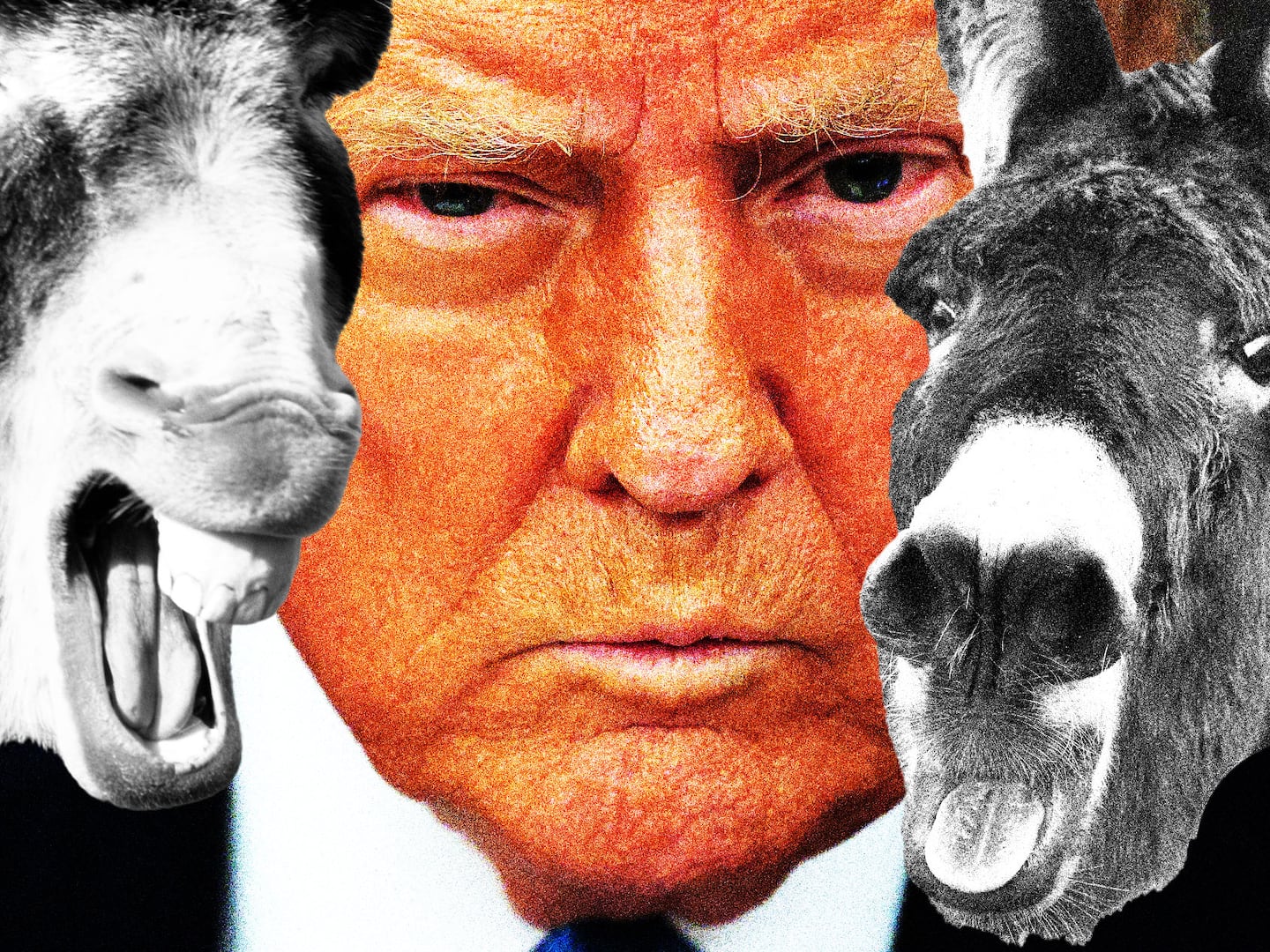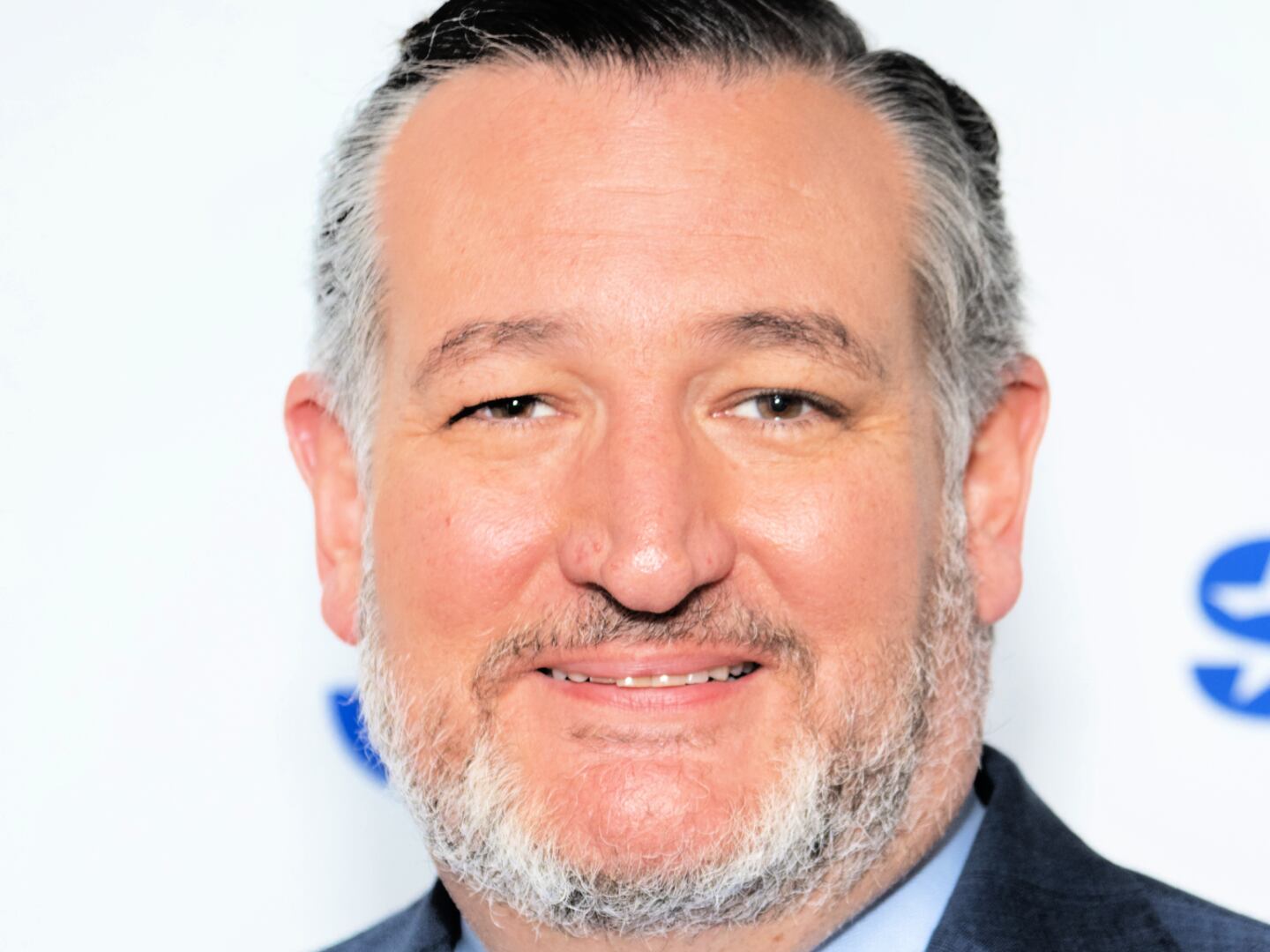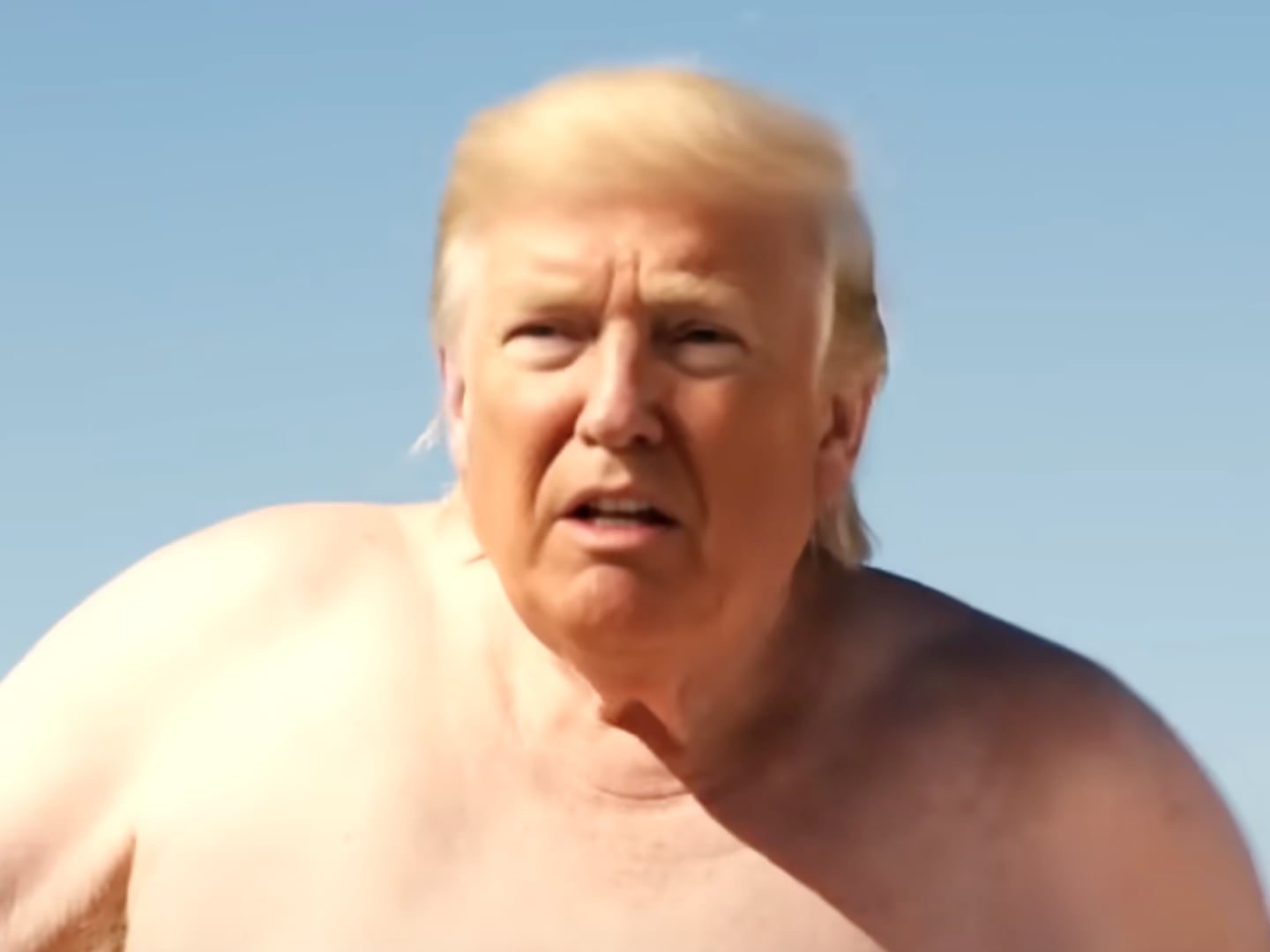President Donald Trump, 79, speculated on Tuesday whether Wall Street Journal owner Rupert Murdoch, 94, actually controlled the newspaper—one day after he demanded the 94-year-old be deposed in the $10 billion lawsuit he’s bringing against the paper.
“I would have assumed that Rupert Murdoch controls it,” Trump said of the Journal on Air Force One on his way out of the U.K. “Maybe he does, maybe he doesn’t. They are talking to us about doing something, but we’ll see what happens.”
Trump sued Murdoch and the Journal earlier this month after the paper reported on a letter Trump allegedly sent to the disgraced billionaire Jeffrey Epstein for Epstein’s 50th birthday in 2003. Trump claimed the letter, which included a sexually suggestive image Trump illustrated, was “fake” and claimed the paper defamed him.
ADVERTISEMENT
On Monday, Trump’s attorney asked a court to compel Murdoch to sit for a deposition within the next two weeks, arguing Murdoch’s “recent significant health scares” may prevent him from speaking about his role, if any, in approving the story.
The request also noted Trump’s direct appeals to Murdoch over the story, which Trump revealed earlier this month in a Truth Social post. Trump claimed Murdoch told him he would “take care of it,” but Murdoch instead appeared to rebuff Trump’s request.
The president claimed on Tuesday, however, that the Journal has sought to settle the case. “They want to settle it,” he said.
A spokesperson for the Journal did not respond to a request for comment. Dow Jones, the Journal‘s parent company, has said it had “full confidence in the rigor and accuracy” of its Epstein piece, and it would “vigorously defend it in court.
Should the paper settle, it would join a growing list of media companies, universities, and law firms who have tried to placate the president’s anger through financial means.
Paramount settled Trump’s $20 billion lawsuit against the company over a 60 Minutes episode for $16 million earlier this month as it sought to get regulatory approval for its merger with David Ellison’s Skydance Media.
The move was heavily panned by critics as a capitulation to the president, and the Federal Communications Commission approved the merger last week. Disney had also settled a lawsuit with Trump for $16 million over an ABC News interview last year.
Columbia University also agreed to pay $200 million to the government to end its regulatory assault on the school, and Harvard University is considering doing the same, according to The New York Times.
Multiple law firms, which Trump targeted after they represented some of his political enemies, have also signed deals with the government to do pro bono work related to the Trump administration’s priorities.
Murdoch has previously given the Journal carte blanche to report on what it deems newsworthy—even if it involves him.
The paper reported extensively on Murdoch’s battle with his children last year to amend his family trust, which he lost, and he allowed the paper leeway to report on the blood-testing company Theranos last year despite founder Elizabeth Holmes’ direct appeal to him, a Theranos investor, over the coverage. Holmes is currently serving an 11-year prison sentence.
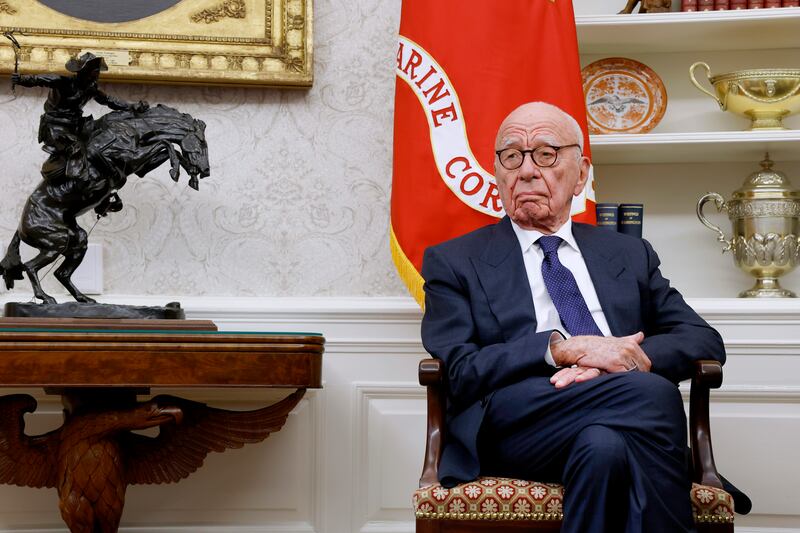
Even as Murdoch’s other U.S. media companies, Fox News and the New York Post, provide often fawning coverage of Trump, the Journal’s opinion side has been allowed to crawl under Trump’s skin. Trump has complained about the paper’s editorial board’s frequent opposition to his policies, voicing his opposition in front of Murdoch directly during Murdoch’s Oval Office visit in February.
“I’ve been right over The Wall Street Journal a number of times,” Trump said during the visit. “I don’t agree with him on some things.”
Still, some Journal reports have angered the Australian media tycoon. Murdoch personally criticized editor Emma Tucker over a Journal profile of media reporter (and frequent Murdoch reporter) Oliver Darcy’s newsletter Status, according to former Daily Beast editor-at-large Lachlan Cartwright’s Breaker Media.


